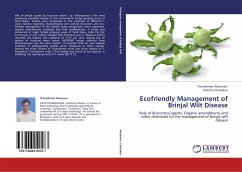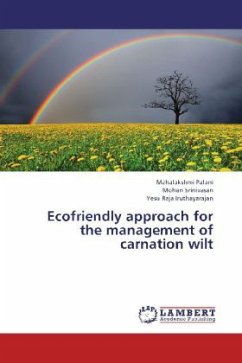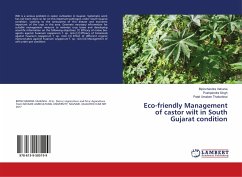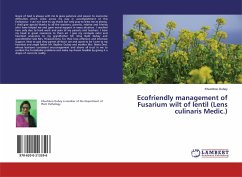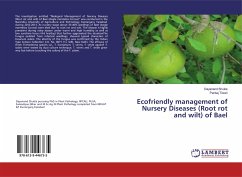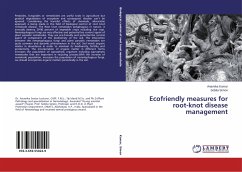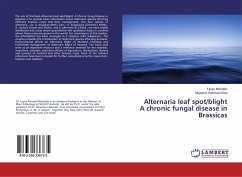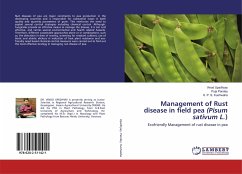Wilt of brinjal caused by Fusarium solani f. sp. melongenae is the most commonly prevalent disease in the conventional brinjal growing areas of Tamil Nadu,. Studies were conducted on the variations of different F. solani isolates regarding morphological and cultural characters and eco-friendly management of the disease using antagonistic micro organisms, organic amendments, chemicals and their combinations. A survey was conducted in major brinjal growing areas of Tamil Nadu, India for the occurrence of wilt, which revealed that Checkkanurani in Madurai district recorded the highest wilt incidence of 13.67 per cent. Among the six isolates of Fusarium solani tested, MDCFSM1 isolate collected from Checkkanurani was the most virulent. It recorded 8.95 per cent disease incidence in pathogenicity studies when compared to other isolates. Among the three isolates of Trichoderma viride and three isolates of T. harzianum, Trichoderma viride1 (Tv1) isolate was found to be superior in inhibiting the mycelial growth of F. solani (69.77 %).
Bitte wählen Sie Ihr Anliegen aus.
Rechnungen
Retourenschein anfordern
Bestellstatus
Storno

